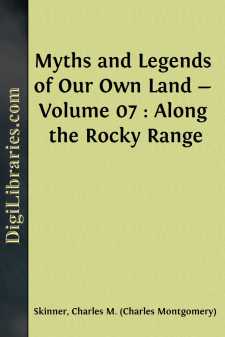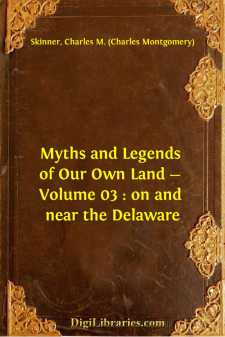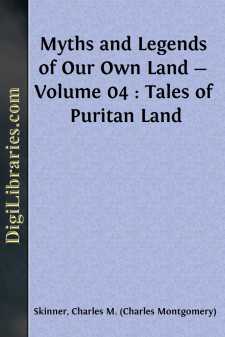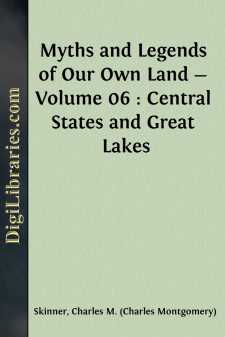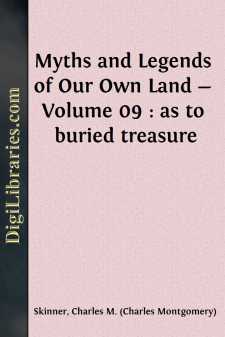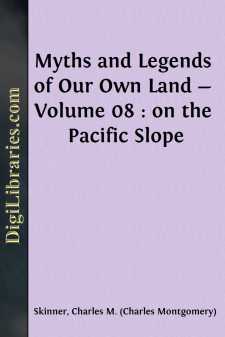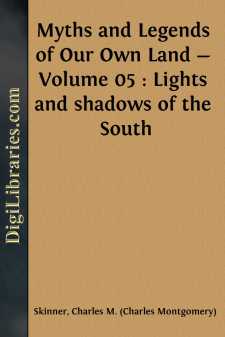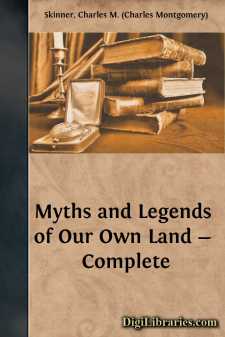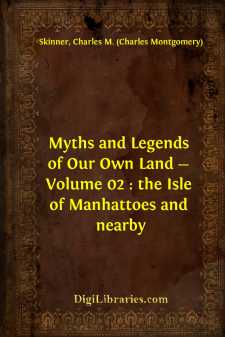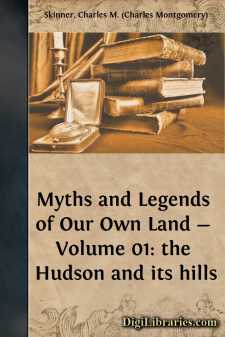Categories
- Antiques & Collectibles 13
- Architecture 36
- Art 48
- Bibles 22
- Biography & Autobiography 813
- Body, Mind & Spirit 142
- Business & Economics 28
- Children's Books 17
- Children's Fiction 14
- Computers 4
- Cooking 94
- Crafts & Hobbies 4
- Drama 346
- Education 46
- Family & Relationships 57
- Fiction 11829
- Games 19
- Gardening 17
- Health & Fitness 34
- History 1377
- House & Home 1
- Humor 147
- Juvenile Fiction 1873
- Juvenile Nonfiction 202
- Language Arts & Disciplines 88
- Law 16
- Literary Collections 686
- Literary Criticism 179
- Mathematics 13
- Medical 41
- Music 40
- Nature 179
- Non-Classifiable 1768
- Performing Arts 7
- Periodicals 1453
- Philosophy 64
- Photography 2
- Poetry 896
- Political Science 203
- Psychology 42
- Reference 154
- Religion 513
- Science 126
- Self-Help 84
- Social Science 81
- Sports & Recreation 34
- Study Aids 3
- Technology & Engineering 59
- Transportation 23
- Travel 463
- True Crime 29
Myths and Legends of Our Own Land - Volume 07 : Along the Rocky Range
Categories:
Description:
Excerpt
ALONG THE ROCKY RANGE
OVER THE DIVIDE
The hope of finding El Dorado, that animated the adventurous Spaniards who made the earlier recorded voyages to America, lived in the souls of Western mountaineers as late as the first half of this century. Ample discoveries of gold in California and Colorado gave color to the belief in this land of riches, and hunger, illness, privation, the persecutions of savages, and death itself were braved in the effort to reach and unlock the treasure caves of earth. Until mining became a systematic business, prospectors were dissatisfied with the smaller deposits of precious metal and dreamed of golden hills farther away. The unknown regions beyond the Rocky Mountains were filled by imagination with magnificent possibilities, and it was the hope of the miner to penetrate the wilderness, "strike it rich," and "make his pile."
Thus, the region indicated as "over the divide" meaning the continental water-shed-or "over the range" came to signify not a delectable land alone, but a sum of delectable conditions, and, ultimately, the goal of posthumous delights. Hence the phrase in use to-day: "Poor Bill! He's gone over the divide."
The Indian's name of heaven—"the happy hunting ground"—is of similar significance, and among many of the tribes it had a definite place in the far Southwest, to which their souls were carried on cobweb floats. Just before reaching it they came to a dark river that had to be crossed on a log. If they had been good in the world of the living they suffered no harm from the rocks and surges, but if their lives had been evil they never reached the farther shore, for they were swept into a place of whirlpools, where, for ever and ever, they were tossed on the torrent amid thousands of clinging, stinging snakes and shoals of putrid fish. From the far North and East the Milky Way was the star-path across the divide.
THE PHANTOM TRAIN OF MARSHALL PASS
Soon after the rails were laid across Marshall Pass, Colorado, where they go over a height of twelve thousand feet above the sea, an old engineer named Nelson Edwards was assigned to a train. He had travelled the road with passengers behind him for a couple of months and met with no accident, but one night as he set off for the divide he fancied that the silence was deeper, the canon darker, and the air frostier than usual. A defective rail and an unsafe bridge had been reported that morning, and he began the long ascent with some misgivings. As he left the first line of snow-sheds he heard a whistle echoing somewhere among the ice and rocks, and at the same time the gong in his cab sounded and he applied the brakes.
The conductor ran up and asked, "What did you stop for?"
"Why did you signal to stop?"
"I gave no signal. Pull her open and light out, for we've got to pass No. 19 at the switches, and there's a wild train climbing behind us."
Edwards drew the lever, sanded the track, and the heavy train got under way again; but the whistles behind grew nearer, sounding danger-signals, and in turning a curve he looked out and saw a train speeding after him at a rate that must bring it against the rear of his own train if something were not done....


